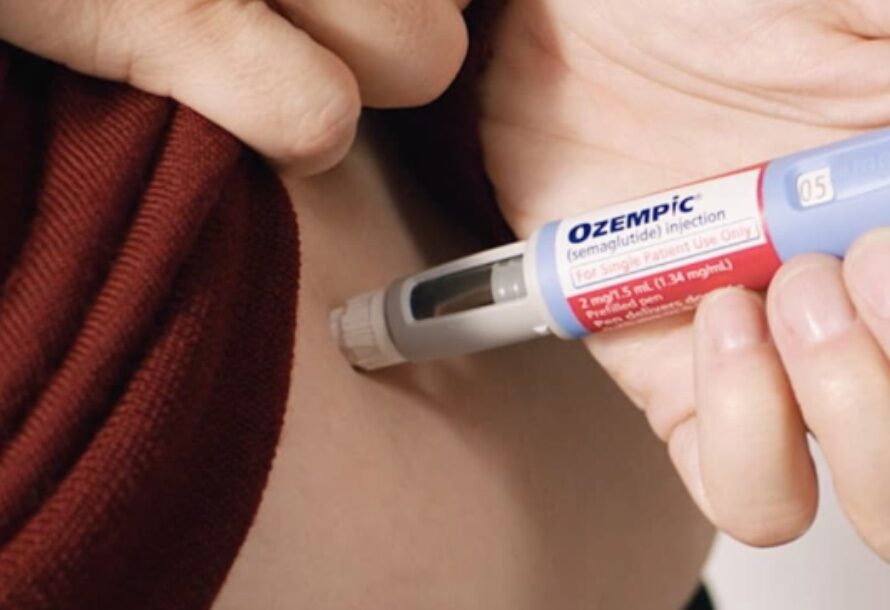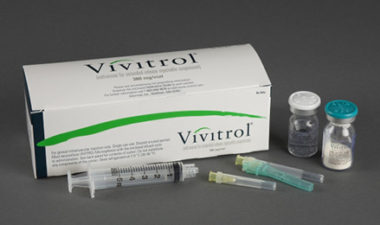In recent years, a new class of drugs has been making headlines for its ability to treat a range of different conditions. These medications include Semaglutide, which goes by the brand names of Ozempic and Wegovy. Originally developed for the treatment of type 2 diabetes, this drug and others like it are called “glucagon-like peptide-1 (GLP-1) receptor agonists”. Because these drugs affect the reward centers of the brain, they are now being studied for the treatment of Alcohol Use Disorder (AUD). (AUD was formerly known as the condition of alcoholism, alcohol abuse, or alcohol dependency.) In this blog we will explore what Semaglutide is, and the potential it has shown in tackling Alcohol Use Disorder.
I have a personal interest in the potential use of semaglutide to reduce alcohol consumption. As a physicianboard certified in Addiction Medicine, I have treated thousands of patients who were dependent onalcohol. Though some medications are helpful in this management (see the discussion on naltrexone below), a more effective treatment for AUD would be very welcome, and could positevely impact millions of lives.
What is Semaglutide? 
Semaglutide, commercially known as Ozempic for the treatment of diabetes, or Wegovy when used to treat obesity, works by imitating the functions of natural hormones in our body. These hormones have the primary effect of increasing the production of insulin when blood sugar levels rise. This is why semaglutide has been effective for the treatment of diabetes. The hormones that Semaglutide mimic, the GLP-1 hormones, also have an effect on the brain, specifically the hypothalamus area of the brain. The hypothalamus contains the brain’s reward system, including the pleasurable response we get from eating food and drinking alcohol. When initially used to treat diabetes Semaglutide, in addition to being effective at lowering blood glucose, was found to also result in weight loss. This result is believed to be partially related to the effect of the medication on the brain’s reward center, as referenced above. Patients’ hunger is reduced because they sense less pleasure from eating. Also, when they do eat, they feel fuller sooner. Or in other words, the experience earlier food “satiety” – that feeling achieved when your brain tells you that you are no longer hungry. The result, for most patients is a 12 to 15% loss of body weight. After further study on obese patients who were not diabetic Semaglutide was approved by the FDA for weight loss. Since 2021 it has been marketed for weight loss as Wegovy. This drug has experienced tremendous popularity for the treatment of obesity. In using these medications for my patients, either for the treatment of diabetes or obesity, many have expressed to me that they also experience decreased alcohol use. I have even had some patients who were drinking more alcohol than they would like have had their alcohol consumption decrease considerably when using this medication.
Alcohol Use Disorder and Current Treatments
Alcohol Use Disorder is a chronic relapsing brain disease characterized by compulsive alcohol use and loss of control over alcohol intake. It affects millions of people in the US. Currently, there are several FDA- approved medications used for AUD, the most popular one being Naltrexone. I have used Naltrexone frequently in treating my AUD patients, and it is helpful in reducing alcohol consumption. It works by blocking the rewarding effects of alcohol. However, naltrexone is not universally effective, and relapse rates remain high.
Semaglutide and Alcohol Use Disorder 
What makes Semaglutide an interesting candidate for AUD treatment is its apparent effectiveness on the brains reward system for alcohol use. It appears to diminish cravings for alcohol in a manner similar to the way it reduces cravings for food. Semaglutide likely modulates the reward system for alcohol, reducing the pleasurable effects of alcohol. It dampens the urge to drink. A number of patients who I have treated with Semaglutide (their indication being diabetes or obesity, but with some excessive alcohol use) have told me that alcohol cravings and consumption were significantly reduced. This result is anecdotal, but it happens
frequently enough in my patients to lend credence to the possibility that Semaglutide may some day be recognized as an effective treatment for AUD.
Other recent studies have begun to shed light on the potential utility of Semaglutide in treating AUD. In animal models (rats) Semaglutide reduced alcohol intake substantially, providing a promising indication of its potential effectiveness in humans.
One clinical trial conducted on humans with AUD who were also overweight showed promising results. The participants receiving Semaglutide reported a decrease in their alcohol consumption. The trial also showed that Semaglutide was well-tolerated, with no major side effects reported. Minor side effects include mostly nausea and constipation, and these usually resolve with continued treatment.
These results mirror my personal clinical experience. My patients taking semaglutide (prescribed for weight loss or diabetes), in general, drink much less alcohol. Its essential to understand that while these initial results are encouraging, they represent only the first steps in the study of the use of semaglutide for AUD. More extensive clinical trials are required to definitively determine Semaglutides safety and efficacy in treating AUD. However, the prospect of a new medication that could effectively reduce alcohol consumption and support individuals in their recovery journey is exciting.
In conclusion, while Semaglutide is not yet a frontline treatment for AUD, evidence is building that it could be a valuable addition to our therapeutic arsenal. If patients meet criteria for the prescribing of this medication (diabetes and/or obesity), I believe it’s use is an appropriate approach to help reduce alcohol use.
Paul Kolodzik, MD, FASAM, FACEP



